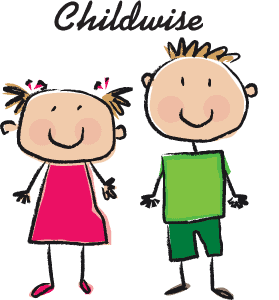
 Childwise is a medical advice column for parents of children ages birth to 21.
Childwise is a medical advice column for parents of children ages birth to 21.
By Kathleen Ganster
The Jerry Sandusky case has dominated the news for weeks. Any parent who read the testimony of the mother of Victim #9 had to cringe when hearing her speak of the allegations by her son about Sandusky.
A few days after reading about her testimony, while listening to the radio, I heard alarming statistics cited by the Pennsylvania Coalition Against Rape (PCAR): One in four girls and one in six boys under the age of 18 will be sexually molested.
As a mother, those statistics scared me. It also made me think. How would I know if one of my children had been sexually assaulted? With statistics like those, that probably meant some child I knew at some point and time had been sexually assaulted.
To answer some of my own concerns and those I am sure other parents share, I consulted with Dr. Mary Carrasco, director of A Child’s Place at Mercy.

Before we move into things for parents to be aware of, let me tell you a bit about A Child’s Place. Founded by Dr. Carrasco, the center is part of the Pittsburgh Mercy Health System, is an accredited Child Advocacy Center and member of the National Children’s Alliance. They provide care to children who are suspected of having been abused or neglected and have conducted over 20,000 assessments.
So now, the tough question. How would a parent know if her child had been sexually abused?
Unfortunately, according to Dr. Carrasco, there isn’t a quick and easy or clear-cut checklist for parents to use.
“The bad news is that you can’t always tell. I’ve been in child- related work for over 25 years, and I can’t always tell even after a very specific exam that we always perform,” she said.
The best action a parent can take is to create an atmosphere at home where the child feels free to tell the parent everything and anything. Most child molesters are discovered when a child tells a trusted adult, said Carrasco.
“It is very rare for the perpetrator to be ‘caught in the act’,” she said.
But establishing a relationship where your child tells you everything isn’t always easy, nor does it work for every child and every situation.
“That is easier said than done. It is hard for a child to talk about this. He or she often feels like they did something wrong,” she said.
Of course, it is the parents’ jobs to protect their children as much as possible including screening any adult children spend time with.
“We often think the molester is someone who is a monster, but he is often someone we trust like a minister, a physician or a bus driver. Many are very, very charming,” she said.
Even when a child goes to spend time at a friend’s house, don’t be afraid to ask questions.
“Are the children going in a group setting? Will they be with other children or will they be sleeping in a room alone?” she said, “And don’t let you child stay alone with an adult that you don’t really know.”
Although Carrasco thinks the statistics reported are a bit high – she stated they usually cite one in five girls and one in 10 boys – they are still alarming.
“It is usually an adult male that does the abuse,” she said.
The abuser is usually pretty “savvy” according to Carrasco and will choose his victims wisely.
“They usually steer away from the feisty child with a big mouth, the kind that can’t keep a secret. They look for the quieter, shyer child,” she said.
There are signs that a child may have been molested including changes in normal behavior, complaints of pain and bleeding, excessive masturbation, bowel movement problems, and fear of a person or going somewhere.
“But these all can be related to other issues so they don’t mean that a child is being abused,” she cautioned.
If you suspect your child may be a victim, ask him if anything happened that made him feel uncomfortable and make it clear you can talk to them about anything.
“You have to be careful how you word it so you don’t scare them or make them feel ashamed,” she said.
If you do suspect your child is a victim, first and foremost make sure they are safe and away from the perpetrator.
If the abuse is recent, take the child to an emergency room or get immediate medical attention. You can also contact A Child’s Place for assistance and of course, your local police. You may also contact CYS or the Allegheny County ChildLine to report the abuse.
If you child has been a victim, proper treatment including counseling is vital to the child and if necessary, for you.
“With therapy, the large majority of these children do fine,” said Carrasco.
To learn more about A Child’s Place at Mercy visit www.pmhs.org or phone 412-232-7200.
CYS may be reached at 412-473-2000 and ChildLine is 1-800-932-0313.
Questions or suggestions for future Childwise columns? Contact Kathleen Ganster at kganster@verizon.net.





